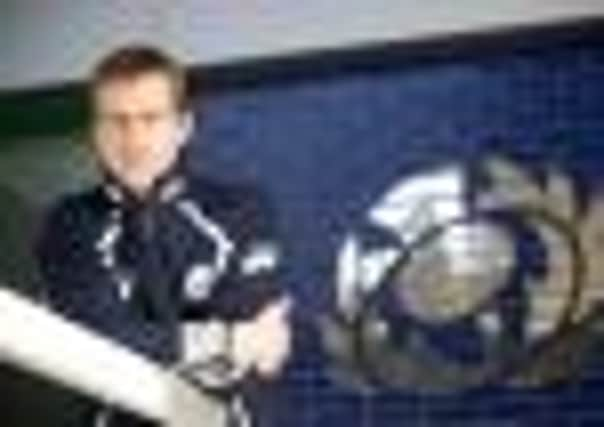Six Nations: Chris Paterson left with all-too-familiar feeling after whitewash


And few will know what it feels like to emerge from a whitewashed tournament as acutely as he does. Paterson was handed the captain’s reins for the first time when Matt Williams took over as Scotland coach for the 2004 Six Nations, just as his fellow Borderer Ross Ford was given the responsibility this year. Then, as now, the result was a run of five straight defeats and the wooden spoon.
Paterson returns to the Edinburgh team this week after shrugging off a groin injury, for the RaboDirect Pro12 match with the Dragons at Murrayfield, but he acknowledges that he had all-too-familiar feelings when the Six Nations came to an end in Rome last weekend.
Advertisement
Hide AdAdvertisement
Hide Ad“It was very similar to 2004 and it’s so difficult,” he said. “I’m a fan like anybody else now. I’m lucky enough to have played and been involved for a number of years, but it was hard to watch, and I think it is harder to watch the team lose.
“You rack your brain looking for a solution and for eight weeks I’ve been thinking ‘what is it?’ It gives you an idea of how hard it is from a coaching perspective, and players’ perspective. Everyone is searching for the same thing and it’s not easy to find, when you’re up against good international sides and the pressure is on.
“I’ve been involved in the dreaded whitewash and games in Italy where you’ve had to win away from home, and your backs are against the wall. It’s hellish. It really is. In 2004 there were a lot of good bits as well; a lot of promise that could easily have won us games. But the bottom line is it didn’t. The lowest point in that championship was when we played France and lost 31-0 at Murrayfield. We could have kicked penalties in front of the sticks in the last five minutes to eradicate the ‘grannied’ thing, but there wasn’t a lot of point. That was tough. This time Scotland’s best performance was against France, ironically, but the results were the same.
“It’s hard to find an answer to turn it around, but it will come. In my experience it comes from hard work, commitment, attitude to improving wee bits of the game and the small execution of skills right time and time again, and it will come again.”
With the Scotland players given a few days off, Paterson has not had the chance to pass on his experience to team-mate Ford, but he plans to.
“I can only speak about my own experience, but my performance dipped because I was so worried about trying to control everything else,” he said. “That was something I learned pretty quickly in that year, when I did unravel the situations.
“All you can really control is getting your own performance right, and by working hard, playing hard and setting an example it’s more effective than worrying about someone else not doing their job right.
“Ross was disappointed in his game at the weekend, understandably, but he was the players’ player of the game against France, and had impressive games in the early part of the championship, with ball in hand a lot and dominating contact.
Advertisement
Hide AdAdvertisement
Hide Ad“It can be a lonely place as well because you do feel an extra sense of responsibility when you’re the captain. I had to go back to concentrating on getting my own bit right, and realising that me playing well helped them to do the same.”
Paterson lost the captaincy after that tournament and Ford may too with Kelly Brown, Andy Robinson’s first choice, due to return from injury in time for the summer tour. But Paterson was given another chance and experienced the joy of leading Scotland to victory in 2007.
He continued: “What Fordy has to remember, and supporters have to remember, is that three or four of our games in this championship could have gone either way. We should have beaten England with a score between us, played some of our best rugby against Wales but had two sin-bins which made it difficult to overcome, and France was a very good performance – one good enough to be a winning one had we held our nerve and got over the line.
“You look back and twice Wales have been wooden spooners and then gone on to win the Grand Slam and I’m not saying we’re going to win a Grand Slam but I know we’re very competitive and our games have been very close, and so it can turn around quickly.”
His focus turns quickly back to Murrayfield tonight and the visit of the Dragons, where he hopes to begin a revival over the next fortnight that sends Edinburgh into the Heineken Cup quarter-final with Toulouse with fresh confidence.
He added: “We have a big few weeks and there will be a lift to the squad because you have quality guys coming back [next week], and the guys who have been training and playing here lift themselves because they want to keep their place and so there will be more of a competitive edge on both sides to get the places. We need to get back to winning ways.”